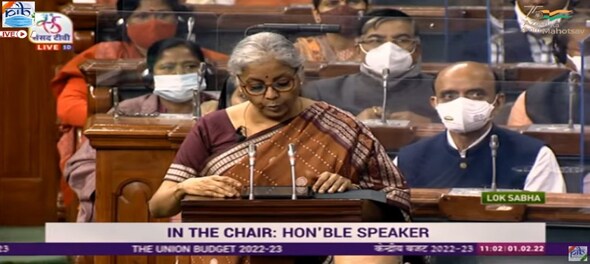
The presentation of the Budget always carries along with it an air of mystique and excitement. (Incidentally though the word ‘Budget’ is so widely used, there is no mention of this word in the Constitution. Article 112(1) of the Constitution only provides for laying before both the Houses of Parliament a statement of estimated receipts and expenditure of the government for that year).
This year was no exception. More so as it was coming after a year of the pandemic and in the shadow of omicron. The importance of the Budget 2022-23 cannot be overemphasized.
To quote from the Minister of Finance’s Budget speech ‘This Budget continues to provide impetus for growth. It lays a parallel track of a blueprint for the Amrit Kaal, which is futuristic and inclusive. And for big public investment for modern infrastructure, readying for India at 100.’
In this backdrop, let me focus on the major changes proposed in the Budget in the Customs Act. The amendments proposed in the Act have been necessitated to further the facilitation measures, to plug evasion and to correct infirmities in the law as observed by judicial forums.
Thus Section 5 of the Act which deals with powers of officers of customs, will see a new sub-section being added in recognition of the practice of faceless assessments and to remove the limitation of jurisdiction. Empowered by technology, industry specific expertise is sought to be developed.
Another facilitation measure is the amendment specifying the validity of an advance ruling to 3 years — the section as it stands today would make it appear that there is no end date. Section 28J of the Act has been amended accordingly.
March 2021 had been a cruel month for the premier investigative agency under the Customs Act — the Directorate of Revenue Intelligence (DRI). The Supreme Court had in a decision which had far reaching impact held that officers of DRI are not ‘proper’ officers of customs. The concept of a ‘proper ‘officer is an essential feature of the Act — only such officers are empowered under the Act.
Being held to be ‘improper’ the DRI officer in effect could not conduct any investigation under the Act. The amendments proposed in the Budget seeks to address these concerns. Section 2 of the Act dealing with the definition of “proper officer” has been modified. Section 3 of the Act has been sought to be amended to include among others the officers of DRI in the ‘classes of officers ’. This too is an essential feature of the Act. As a corollary to these amendments Section 5 of the Act has also been amended empowering the Board to assign functions to officers of customs.
A Clause 96 has been inserted in the Finance Bill, 2022 to give validation to any action taken or functions performed before the date of commencement of the Finance Act, 2022. This is a necessary retrospective proposal. It seeks to specifically address the consequence of the fallout of the Supreme Court decision regarding the powers of the officers of DRI. This hopefully should set at rest the confusion caused and restore the DRI back to its pristine glory.
Officers of the DRI (among others) were on completion of investigation also empowered to issue notices. An amendment has been proposed and a new section sought to be introduced (section 110 A) whereby after investigation the report would have to be transferred to the proper officer having jurisdiction for further action.
Another significant step to check evasion is the proposal to amend the section regarding valuation (section 14). Additional obligations are being cast on the importer in respect of certain class of imported goods as selected by the Board.
Another change proposed is to protect (Section 135AA) the data submitted to the department by importers or exporters in their declarations. The publishing of such information unless provided by the law, has now been made an offence. This was a major problem with confidential data being sold in the market.
There have been some changes in the Customs Tariff Act basically aimed at bringing clarity in classification. An exercise of ‘ tarrifisation ‘ has been carried out -basically meaning the rates as prevalent in notifications have been brought into the tariff .The exemptions itself would be phased out. This would be a very useful simplification measure.
Similarly, the weeding out of exemption notifications has been done. This was an exercise initiated last year. This Budget will see the end of about 350 notifications. A sunset clause has also been introduced for all exemptions -yet another commitment of the last Budget.
The Minister in her speech had warm words of appreciation for the functioning of the Customs department. She mentioned that the ‘Customs administration has reinvented itself over the years through liberalised procedures and infusion of technology. She went on to add ‘During Covid-19 pandemic, Customs formations have done exceptional frontline work against all odds displaying agility and purpose.’ The officers of the Customs department have reason to be proud.
— Najib Shah is the former chairman of the Central Board of Indirect Taxes & Customs. The views expressed are personal.
Read his other columns here
(Edited by : Ajay Vaishnav)
Check out our in-depth Market Coverage, Business News & get real-time Stock Market Updates on CNBC-TV18. Also, Watch our channels CNBC-TV18, CNBC Awaaz and CNBC Bajar Live on-the-go!


BJP is planning to ban RSS, says Shiv Sena (UBT) chief Uddhav Thackeray
May 18, 2024 8:01 PM
Punjab Lok Sabha elections: Complete list of Congress candidates
May 18, 2024 4:08 PM
Punjab Lok Sabha elections: Check full list of AAP candidates and constituencies
May 18, 2024 12:59 PM
PM Modi, Rahul Gandhi election rallies in Delhi today: Here are the routes to avoid
May 18, 2024 11:28 AM

